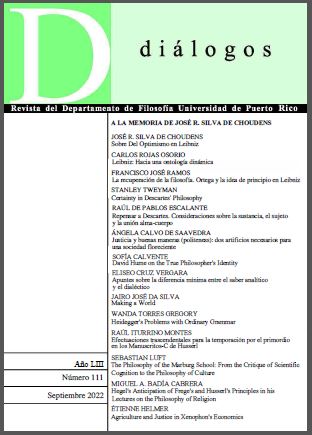Abstract
In the fourth paragraph of the third meditation, Descartes insists that he must know that God is his creator and that God is not a deceiver, “for without a knowledge of these two truths, I do not see that I can ever be certain of anything”. On the other hand, in the Replies to Objections II (paragraphs 38 –40), he urges that there are some claims, for example, that I, while I think exist; that what is once done cannot be undone, which do not require the divine guarantee: “What is it to us, though perchance someone feigns that that, of the truth we are so firmly persuaded, appears false to God or to an angel, and hence is, absolutely speaking, false...We have assumed a conviction so strong that nothing can remove it, and this persuasion is clearly the same as perfect certitude.” In my article I examine these two different views in Descartes’ writings, in order to determine which view is Descartes’ official view regarding the need for the divine guarantee. I conclude my discussion with an explanation as to why Descartes holds that certain propositions do not require the divine guarantee in order for us to be confident that they are certain, and other propositions do require the divine guarantee.

This work is licensed under a Creative Commons Attribution-NonCommercial 4.0 International License.

